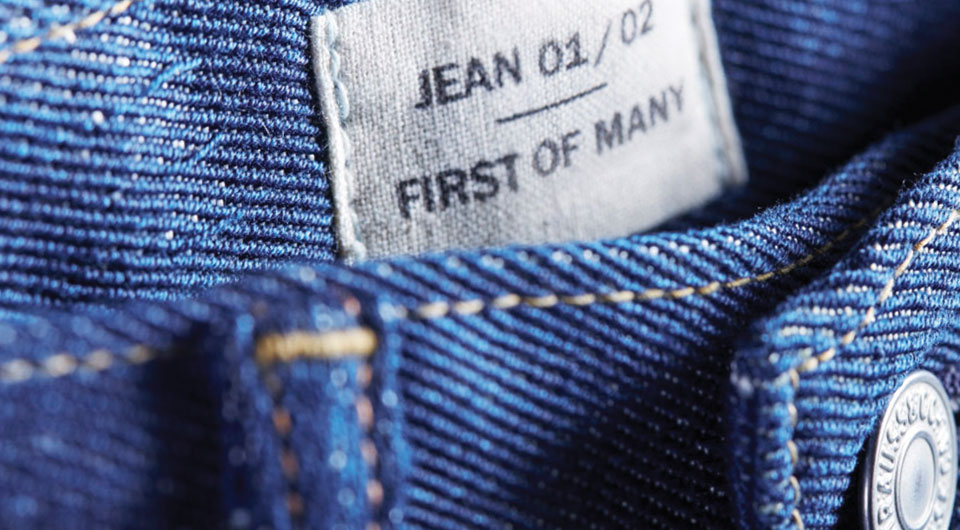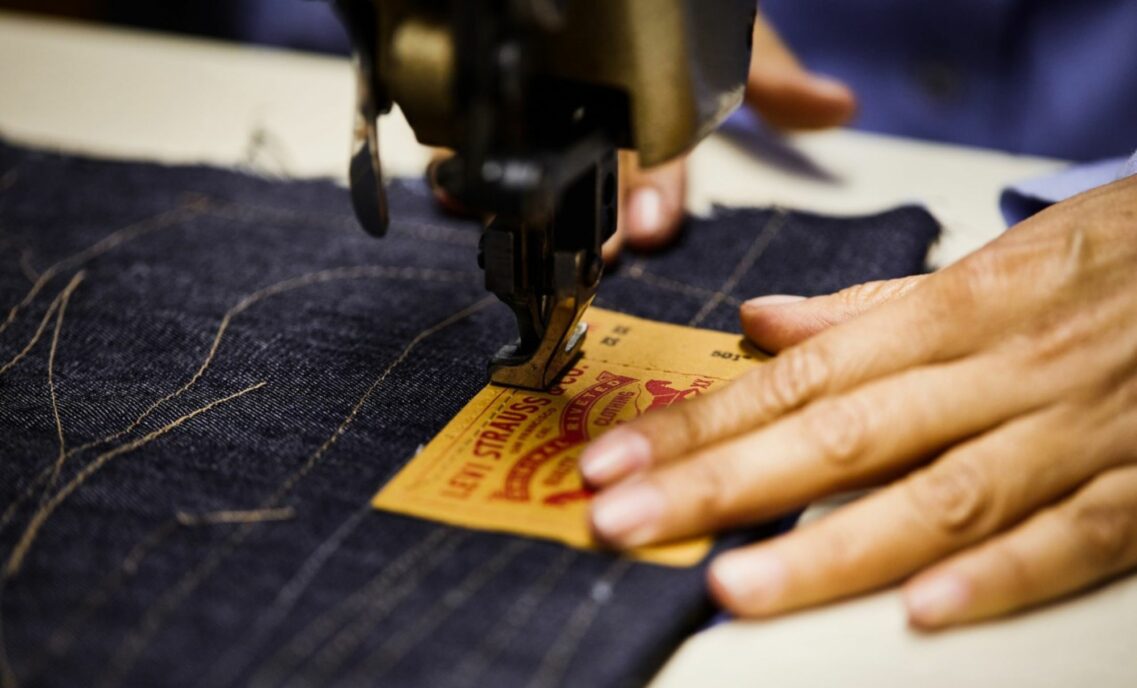A new pair of Levi’s® from old T-shirts? Welcome to the future of truly sustainable fashion.
Levi Strauss & Co. has partnered with textile technology startup Evrnu™, SPC to create the world’s first jean – in the form of pair of Levi’s® 511® jeans – using five discarded cotton T-shirts to make new fiber. The cutting-edge method not only converts consumer waste into renewable fiber, it also uses 98 percent less water than virgin cotton products, according to Evrnu data. Although some virgin cotton was used, this represents a huge breakthrough in recycling technology.
“This first prototype represents a major advancement in apparel innovation. We have the potential to reduce by 98 percent the water that would otherwise be needed to grow virgin cotton while giving multiple lives to each garment,” said Paul Dillinger, head of global product innovation at Levi Strauss & Co. “Although early days, this technology holds great promise and is an exciting advancement as we explore the use of regenerated cotton to help significantly reduce our overall impact on the planet.”
Each year in the U.S. alone, 13.1 million tons of textile waste is created, with 11 million tons ending up in landfills. Until now, there hasn’t been a viable solution to turn old clothes into new without compromising quality or strength. But by being able to breathe new life into used clothes, both companies are embracing the vision of creating a circular economy that extends the life of cotton and eliminates waste.
“LS&Co. was the perfect first partner for us to demonstrate our technology and capability as they are an iconic American company with a product that’s recognized around the world,” says Evrnu CEO Stacy Flynn. “Our aspiration is to build a pair of Levi’s jeans that are just as beautiful and strong as the original and we’re making great progress toward that goal.”
For LS&Co., this collaboration is part of a wider innovation and sustainability strategy. We’re taking a more holistic approach to sustainable product design with our Wellthread® products, which consider social, environmental and economic sustainability factors. We also recently open sourced our Water<Less® finishing techniques globally to increase adoption across the apparel industry and reduce water consumption overall.
With 68 percent of the amount of water used to create a pair of jeans going toward fiber production alone, we recognize the opportunity to reduce water use at the cotton growing stage.
“By tackling water conservation through new fiber innovation, the apparel industry has the potential to significantly reduce its water footprint,” Dillinger continued. “As technologies such as Evrnu evolve over time, there will be greater opportunities to accelerate the pace of change towards a closed loop apparel industry.”

Levi Strauss & Co. + EvrNu Create First Pair of Jeans From Post-Consumer Cotton Waste
May 11, 2016






